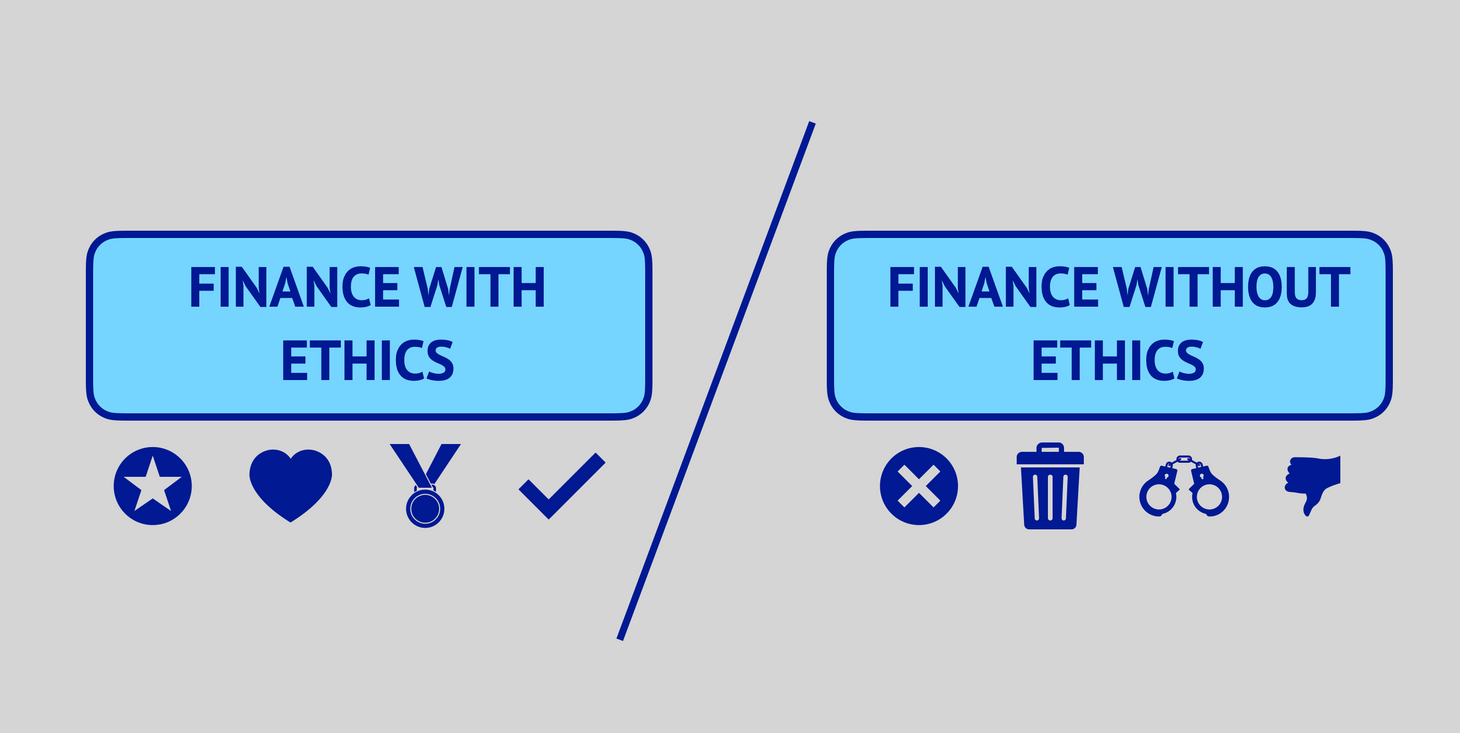The Role Of Ethics In Finance
Regulation and Technology play a part, but Ethics reign supreme.

Table of Contents
Hey there,
Last week's article, Blockchain: The Next Internet, ended with a question - can technology and policy (by themselves) ensure good human behaviour? Or does moral fabric have some role to play?
Today's article talks about the crucial (yet often forgotten) role of ethics in economies and societies. Ethics tend to have an uncool vibe. But, I'd argue that ethics makes ALL the difference. And a lack thereof, brings ruin en masse.
This article will flow in the following format -
- The current state of global finance
- At the policymakers level
- At an organisation level
- At an individual level
- Conclusion
I hope you'll enjoy it. :)
The current state of global finance
In finance, globally, the following three trends are unmissable -
(Discussing these briefly to set the stage for our discussion on ethics.)
Global interlinking
Due to heightened levels of foreign trade, financial institutions across the globe regularly transact with one another. This leads to interdependence. Happenings at financial institutions in one part of the world impacts its peers everywhere else.
Continuous innovation
Everything from products and services, to business models, to marketing strategies is constantly evolving. Never before has the pace of innovation been so relentless.
What this does is, relatively smaller players are unable to keep on improving their offering, which their larger peers can. This leads to consolidation amongst competitors, creating even larger players as a result. (An article about rapid acquisitions taking place in India's insurance sector).
Large organisations
Financial institutions act as custodians of public money - a position of immense responsibility. Considering the sheer size of the top players in the world (like Citi group, JP Morgan Chase, and Bank of America), this duty becomes critical to the functioning of societies.
Considering the above context, let's discuss the role of ethics at policymaker, organisational and individual level.
At the policymakers level
Policymakers sit at the centre of the economy and societies, assuming overall responsibility for their functioning. Resultantly, their decisions have far-reaching consequences on the ground.
Let's think of this through the lens of three financial sector regulators -
- The Reserve Bank of India (RBI) - the regulator of Banks and NBFCs.
- The Insurance Regulatory and Development Authority of India (IRDAI) - the regulator of India's insurance industry.
- The Securities and Exchange Board of India (SEBI) - the regulator of India's capital markets.
Think now, of the size of these industries, the number of people they employ, the livelihoods they affect. Next, the size of the players involved like ICICI, HDFC, Kotak, Aditya Birla, and LIC. Then, the foreign players involved like Citi Group, Standard Chartered, and Franklin Templeton. And finally, all the innovation that's happening - Blockchain, Peer-to-peer lending, Wallets, InsurTech, and so on.
It's easy to Google and add specific date, but I'm trying to make Finance readable. :)
The magnanimity of the task regulators perform is hard to fathom. There are always regulations to be written (and constantly updated), inane amounts of guidelines to be issued, troubleshooting to be done... and every move has multiple layers of outcomes on the ground.
To top it all, the kind of money involved is just silly. Unless these entities have a strong grounding in ethics, any individual would be susceptible to slip into a wrongdoing for their own self-interest.
It starts at the top, and then, good behaviour has to be encouraged throughout the organisation. Ethics cannot be acquired and discarded at will. They must be imbibed, honed, and protected - all the time.
At an organisation level
Memories of corporate mismanagement still haunt the families of those they affected. Satyam Computers, Sahara Airlines and DHFL, come to mind.
What went wrong?
All of these are tales of the ruin caused by individual and collective greed, with scant regard to discretion, sound judgement and self restraint. Most organisational meltdowns are rooted in similar human weaknesses. It usually begins with a violation of inner individual conscience, and ends with a large number of casualties and grave losses.
In high pressure moments, some times, people at the helm of organisations permit certain unethical decisions, under the belief that they would benefit the people. But in the end, these neither pass the test of morality, not benefit people.
In working out strategies, both ends as well as means, should be ideally motivated, and in sync with each other.
In modern times, humanity has moved from a family-based-society to an economically-driven-society. Earlier life decisions were made based on what suited one's family life, now, more often than not, one's family life adjusts to the economic opportunity and personal preferences.
In wake of this switch, elders in families aren't present to guide one into a values-based-living. Thus, the duty the workplace must assume is much larger.
So, individual leadership must ingrain ethics into an organisations culture! Without it, no amount of regulation would be adequate.
At an individual level
In Indian spirituality, there's a concept that says - First of all we have to recognize the role of vyashti (the individual). Only then can we understand the principle of samashti (the society), which will in turn lead to the understanding of srishti (the creation). And the one who understands srishti (the creation) becomes one with parameshti (Divinity). So first, we must recognise the role of the individual. Only then can we understand the higher levels.
For all of us, the ability to follow ethics demands self-restraint; along with a dose of compassion in all circumstances, against all provocation.
Ask someone who adheres to a strict diet, or an athlete training for a competition or a trader who always hedges and uses stop losses. All of them recognize that short-term sacrifice will beget long term benefits.
All admirable human endeavors require discipline! So why not in the run-of-the-mill finance jobs?
Finance is a field which impacts everyones life, and everyone, by their behaviour have an impact on the industry. For example, having car insurance might induce some to drive rashly, putting themselves, as well as others at risk. If enough people behave similarly, insurers would now have to pay more and more insurance claims. When claims paid out as a whole start exceeding premiums received, insurers will increase the rates of premium being charged. As a result, everybody would suffer due to the bad behaviour of a few.
So, the root of a good, balanced society lies in its individuals adhering to moral behaviour at all times.
Conclusion
Technology can help record all contracts and transactions, so as to induce people to behave well. The logic is, since people care about their reputation, they would behave well. But, what happens when someone who doesn't care about their reputation comes in?
Regulation can put in place many checks, reports, and audits. But adequately motivated individuals, in the history have found their way around the toughest regulations. Besides, too much regulation is a problem most honest businesses face nowadays.
At an individual level, if one is always in sync with their conscience, and at an organisational level with the collective conscience of individuals leading the show - that would create a far better society.
Don't get me wrong, I'm all for technological advancement. But, the kind of society we all want to have, can only come about through mass adoption of ethics.
If you've reached till here, you're the real MVP! Thanks for reading. :)
Stebi Newsletter
Join the newsletter to receive the latest updates in your inbox.

